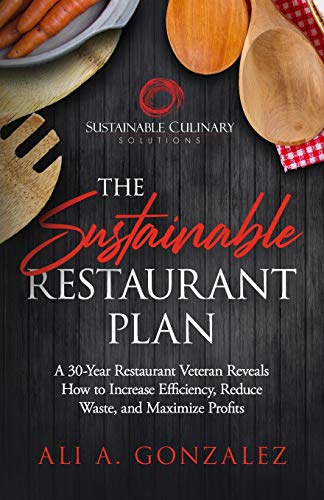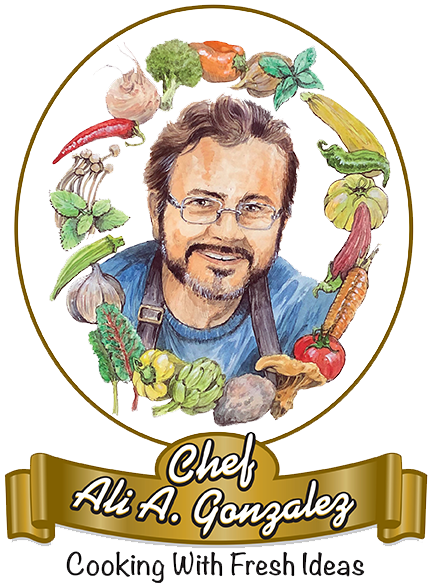The Shocking and Secret Truth About Unhealthy Processed Foods in America

Ali Gonzalez
Sustainable Culinary Solutions

Many of you have heard of the saying “You are what you eat”. The reality is you are eating a lot more processed foods than you are aware of. There are MILLIONS of Americans today that aren’t getting informed about the awful ingredients in the foods that they are buying. Don’t you want to know what you are eating every day? Let’s start by defining what processed foods are and how they affect your body. Processed foods are any type of food that has been changed from its original form in some sort of way. These foods pose a health risk to your body because they have low-quality and artificial ingredients.
You want to be able to know that you can trust companies to give you the best quality foods to feed yourself and your family. Sadly this isn’t always the case… Have you ever felt terribly sick? Maybe you’ve experienced nausea, stomach aches, no energy, no focus, anxiety, depression… These are a few of the short-term effects that come along with processed foods. What happens to your body when you continuously eat ultra-processed foods over a long period of time? It can lead to long-term damage and even life-threatening illnesses.
Don’t you want to know what you are eating every day?
If You Don’t Learn How Ultra-Processed Foods Affect You, You’ll Hate Yourself Later
Why are these sickening ultra-processed foods such a huge problem? Ultra-processed food is the leading cause of cancer, Alzheimer’s, heart disease, obesity, and auto-immune disease. These chronic illnesses kill over a million Americans each year. You are handed misinformation being told you only get these illnesses from “family history” or “not eating healthy enough”. If you knew the full ingredients and additives in the processed foods that you are eating today, you would be too disgusted to want to eat them again. What happened to the glistening years of eating flavorful and fresh whole foods?
The horrific truth is that most of the ultra-processed foods on the shelves inside your local grocery store have questionable ingredients in them. These foods contain seed oils, highly processed grains, and heavily added sugar. Yes, those three ingredients are extremely bad for your health, but what if I told you that it doesn’t stop there? You mean there’s more? There are so many food additives that exist in the U.S. that it’s now hard to keep track. According to the World Health Organization, Substances that are added to food to maintain or improve the safety, freshness, taste, texture, or appearance of food are known as food additives. Not to mention your food is being stripped away of its nutrients and fiber. Ultra-processed food is being altered so it can be physically appealing, highly addictive, delicious, and lower costs. Keep in mind, this is what is costing you your health.
Seven food additive ingredients to be cautious about:
- Monosodium Glutamate (MSG)
- Food Dyes
- Sodium Nitrites/Nitrates
- Sodium Benzoate/Potassium Benzoate
- High-Fructose Corn Syrup
- Artificial Sweeteners
- Butylated Hydroxyanisole (BHA)
The horrific truth is that most of the ultra-processed foods on the shelves inside your local grocery store have questionable ingredients in them.

Why Does Europe Have Safer and Stronger Food Regulations Than the US?
Think about it this way… you see a mouth-savoring chocolate cupcake at the grocery store that you decide to buy. Although you know it’s not the healthiest snack, you don’t think twice about the food ingredients. You eat the cupcake without knowing 100% what it is doing to your health. I was taking a look at a chocolate cupcake from a popular grocery store. There were over 40 ingredients inside this snack, many of which were questionable. It’s time to ask yourself… Why do the labels at the grocery stores have long lists of ingredients with words I can’t pronounce? It’s short and simple, to increase profits and extend shelf life – Your health isn’t their priority.
If the U.S. FDA allows so many processed food ingredients, then other countries throughout the world must do the same right? No… Actually, that might be one of the most disturbing facts about processed foods in America. Many of the toxic food ingredients allowed in the U.S. are banned around the globe. For example, Coca-Cola in the U.S. is made with different ingredients than in Europe. It is the same product, but European Coca-Cola replaces high-fructose corn syrup with cane sugar. Many countries don’t even carry certain American products because of the harmful effects. American healthcare is the MOST expensive in the world yet is dedicated to treating illnesses that are caused by the toxic ingredients that you are exposed to. Several other countries are committed to keeping their citizens safe and healthy with lower healthcare costs.
It’s not only processed foods that you have to be wary of but everyday products as well. This can range anywhere from cosmetics, skincare, hair care, cleaning products, air fresheners, candles, and so much more! 80 nations throughout the world have taken action to protect their people by getting rid of toxic ingredients. According to the Environmental Working Group, Some of these nations have restricted or completely banned more than 1,600 chemicals from cosmetic products. It is completely absurd that the U.S. only bans 11 toxic cosmetic ingredients. There is a problem if other countries are banning ingredients that you are eating and using daily.
Why do the labels at the grocery stores have long lists of ingredients with words I can’t pronounce?

Here Is the Solution – Helping Thousands to Improve and Renew Their Health
Now before you start freaking out, there are many steps you can take to create a solution. The amazing part about understanding how processed foods are made is being able to take action. Giving yourself the best lifestyle to thrive and spreading awareness is so important. Tell your family and friends how they can make healthier choices by avoiding dangerous processed foods. We need to create AWARENESS. Stay away from greenwashing products that falsely advertise that they are healthy and environmentally friendly. Instead, do your own research so you can eat delicious foods that will boost your energy and health. You need to start by eating fresh whole foods that are natural and organic. Various studies have confirmed that the benefits of a wholefood diet or a minimally processed diet include lower rates of heart disease and type 2 diabetes, as well as some cancers. You can take action toward a healthier lifestyle by getting the recommended amount of exercise, sunlight, and sleep. Be sure to avoid high sugar and highly processed grains.
You can swap out your inflammatory seed oils with extra virgin olive oil, avocado oil, or coconut oil. There are plenty of delicious foods that are high in micronutrients, fiber, antioxidants, and omega-3s that will support your health. Avoid lab-grown meats and farm-raised fish whenever possible. Remember to pay attention to the labels on the packaging. Eat organic fruits and vegetables because they are disease-fighting foods. They have nourishing fiber that will make you look and feel amazing. Let’s not forget the many scrumptious ways that they can be prepared and served. If buying organic fruits isn’t possible for you, here is a quick home remedy. Soak your fruit in water and baking soda for 15 minutes to remove the pesticides. Remember 1 teaspoon baking soda per 2 cups of water. Support and buy produce from your local farmers. Go to the farmer’s market, their farms, or order from their website. As always, be sure to do your research.
Here at Sustainable Culinary Solutions, we believe in using fresh ingredients and sustainable practices in the kitchen – While still being profitable. BOOK A CONSULTATION call today by clicking the “Let’s Talk” button in the top right corner.

Resources:
Still Planning?
The Sustainable Restaurant Plan
You can get started with my book which reveals how to increase efficiency, reduce waste, and maximize profits.

Latest Trends








